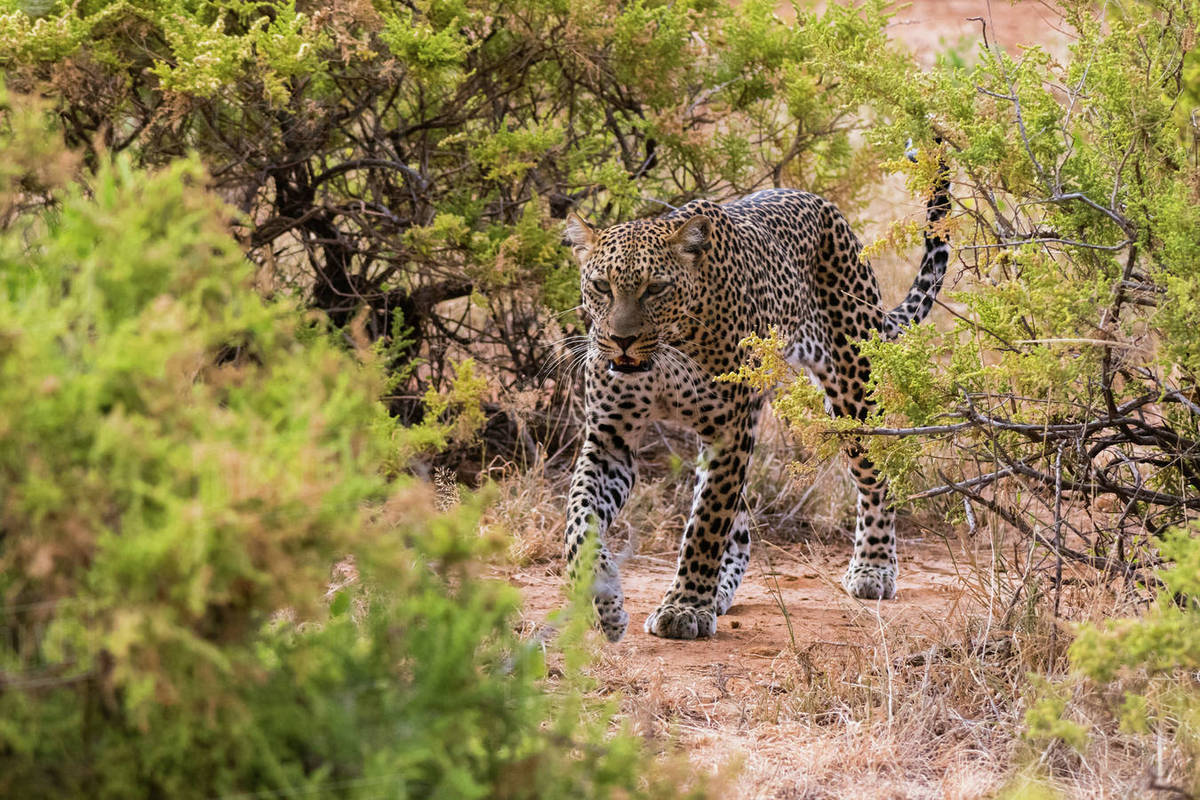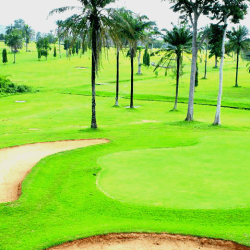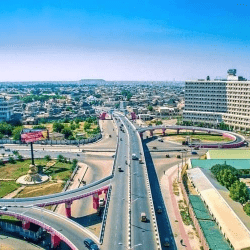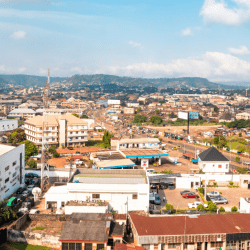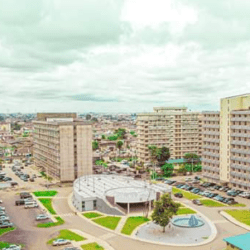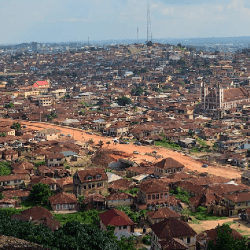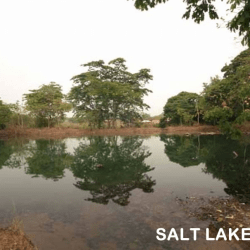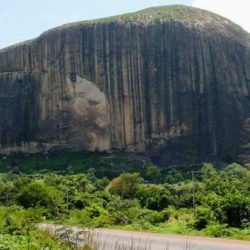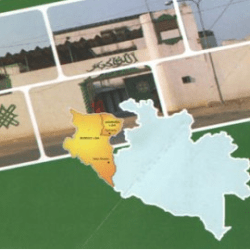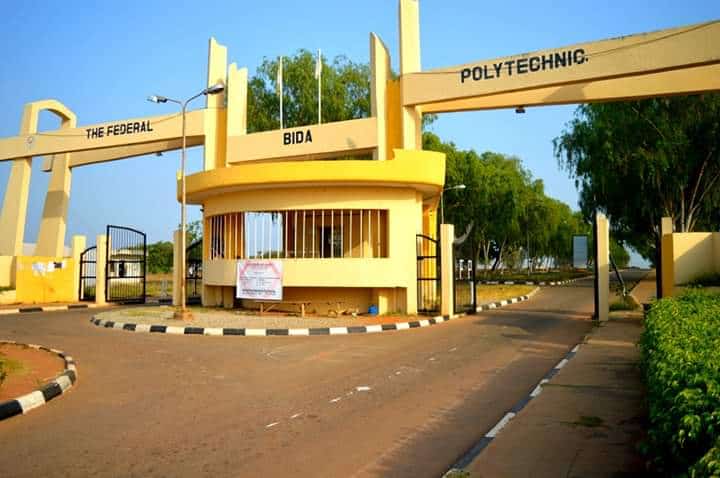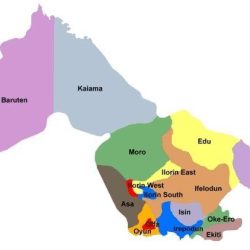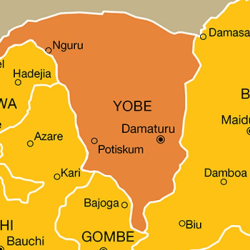Tourism in Borno state is based primarily on its natural resources, impressive history, rich traditions and cultural heritage of the people. In the state are found sceneries of poetic beauty in the hilly south and historic monuments representing the past grandeur of Kanem Bornu Empire in the north. The state which is described as the “Home of Peace” is endowed with lots of tourist attraction centres.
SANDA KYARIMI PARK (ZOO)
The zoological park is situated within the metropolis along Shehu Laminu Way, which was initially established in 1970 as a community forest reserve. It was developed into a two acre wildlife sanctuary as well as botanical park. It houses a lot of animal species of great beauty and serves as leisure for people, especially during festivals.
LAKE ALAU
The Lake Alau is situated off Maiduguri Bama Road, Some fourteen (14) kilometers away from Maiduguri. The lake is a natural water storage formed by River Ngada characterized by a charming, undulating landscape, which is further beautified by savannah vegetation and its sparkling shores around it. Legends have it that the basin is the spot where Idris Alooma, one of the famous warriors, hero and charismatic leader of the ancient Kanem Borno Empire was buried, hence the name “Alau”. Lake Alau is a site for intensive farming, especially irrigation during the dry season where spinach, onions and tomatoes are being cultivated by individuals. Fishing is another economic activity that takes place on the lake’s shores. It also provides water to Maiduguri metropolis through the water treatment plant.
GWOZA HILLS
The Gwoza hills with height of about 1,300 metres above the sea level provides scenery of poetic beauty and is made up of ranges of mountains/hills known as the “Mandara Mountains”. These mountains/hills form a natural barrier between Nigeria and the Republic of Cameroon, starting from Pulka with its attractive tourist rock in Gwoza local government area meander towards Mubi and beyond into Cameroon. The mountain, with promenade-like paths along Gwoza vicinity is conducive for mountaineering, trekking and picnicking. It has several streams, ponds, and springs and is dotted with various settlements. The mountain has varieties of attractive animal species which can be spotted during feeding times. The government also used these hills as training ground for mobile police, members of the man-o-war and various national orientation courses.
BORNO STATE MUSUEM
The museum is situated at the premises of the open air theatre within the sate capital. It is an epitome of Borno’s famous history and cultural heritage which was collectively enriched by its heterogeneous ethnic groups. It was established primarily for the preservation, exhibition, promotion and research of the antiquities as well as the contemporary art works. Craft and other historical artifacts of the people of Borno State.
LAKE TILLA
It is a crater lake, some seven (7) kilometers southwest of Biu and Hawul Local Government Areas. The lake varies in size according to season. Government is currently developing the lake as a holiday resort and already chalets and restaurants have been provided for the comfort of guests.
Chad Basin Natural Park, Chingurmi-Duguma

The park has three parts.
In the Chingurmi-Duguma area of the park 66 species of birds have been recorded such as the black-crowned crane, pallied harrier, African-collared dove among others.
The Bula Tura Oasis area is a number of swampy valley called oases and is home to some rare desert wildlife which include ostrich, glossy ibis, ratel, and mongoose.
The Bada Nguru Wetlands area has the Dagona Waterfowl Santuary. The sanctuary is significant as it is host to migrant European birds that flock there in the thousands every year as they escape Europe’s winter.
Biu Plateau, Biu

The Biu plateau contains a number of extinct volcanoes.
It is the source of many tributaries of the Gongola River. It has an average elevation of 2,300 feet and covers 5,200 square kilometres.
Do Rabeh’s Fort, Dikwa

Located in Dikwa town, Rabeh Fort is a 125-year-old monument that depicts the rich cultural heritage of the people of Borno State.
Borno
Borno is a state in Nigeria.
It’s one of the six states that form the North-East geopolitical zone of Nigeria.
Borno shares international borders to the North with Niger and Chad as well as with Cameroon to the East. Its Southern and Western borders are shared with Adamawa, Gombe and Yobe States. Maiduguri is the state capital.
State capital: Maiduguri
Local Government Areas: 27
Landmass: 57,798.1 sq km (22,316 sq mi) – 1st of 37
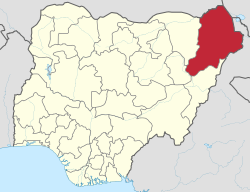
LANDMASS, LOCATION
Borno State has an area of 57,798.2 square kilometres.
It lies roughly at latitude 11°30’ North and longitude 13°00’ East.
HISTORY AND PEOPLE
The first settlers of Borno State were the Teda (Tibesti), Kanuri and Kanembu who lived around the state’s lake and rivers. These people were also called Sao. The Sefawa later displaced them in the fifteenth and sixteenth centuries.

Borno State has its roots in the move by the Saifawa rulers (Mais) of El Kanemi to the area west of Lake Chad in the fourteenth century. These people were referred to as the people from Bahr-el Nur; this name was later corrupted to Borno. It was under the Mais that the Kanuri emerged as a nation. The Fulani jihad of the nineteenth century greatly weakened the authority of the Mais who were eventually displaced by Muhammed El-Amin lbn El-Kanemi, a Kanembu Islamic scholar who established the El-Kanemi dynasty, took the title of Shehu and transferred the capital to Kukawa. Rabeh, a Shuwa Arab, sacked much of Borno in 1893 and became its ruler, transferring the capital to Dikwa.
European colonisation in the last decade of the nineteenth century led to Rabeh’s defeat and the dismemberment of the Borno Empire. Following its division between the British and the French at the turn of the twentieth century, Borno State became part of Northern Nigeria. It was part of the Northern Region in the three-region structure of 1954 and part of North-Eastern State following the establishment of twelve federal states by General Yakubu Gowon’s military government. It was established as its own entity in 1976 following the dissolution of the North-Eastern State. The state’s borders were further adjusted when Yobe was excised from it in 1991.
Borno State is heterogeneous with twenty-eight (mostly Chadic) languages. The Shuwa Arabs, Kanuri and Marghi are the most represented people in the state and Kanuri is its dominant language. Other ethnic groups include the Hausa, Fulani and a number of tribes from southern Nigeria. Islam is the major religion in the state. There is a Christian minority concentrated around Maiduguri.
CULTURE
The people of Karai-Karai and two other tribes in Potiskum, Nangere and Fika local government areas mark the Barakau festival in June and September every year. During the festival, the people kill a cock of over one year old and splash its blood on the farm implements of each household.
Other cultural activities include the Durbar and Menwara festivals. The durbar festival is marked with display of horsemanship and reflects the state cultural diversity.
MAJOR TOWNS AND CITIES
Maiduguri (capital), Biu, Bama and Dikwa.
LOCAL GOVERNMENT AREAS

GOVERNORS
Musa Usman (Governor– Military): May 1967 – July 1975
Muhammadu Buhari (Governor– Military): July 1975 – March 1976
Mustapha Amin (Governor – Military): March 1976 – July 1978
Tunde Idiagbon (Governor– Military): July 1978 – October 1979
Mohammed Goni (Governor – Civilian (Great Nigerian People’s Party)): October 1979 – October 1983
Asheik Jarma (Governor – Civilian (Nigerian People’s Party)): October 1983 –December 1983
Abubakar Waziri (Governor– Military): January 1984 – August 1985
Abdulmumini Aminu (Governor – Military): August 1985 – December 1987
Abdul One Mohammed (Governor – Military): December 1987 – December 1989
Mohammed Maina (Governor – Military): December 1989 – June 1990
Mohammed Marwa (Governor – Military): June 1990 – January 1992
Maina Lawan (Governor – Civilian (Social Democratic Party)): January 1992 – November 1993
Ibrahim Dada (Administrator – Military): December 1993 – August 1996
Victor Ozodinobi (Administrator – Military): August 1996 May –1997
Augustine Aniebo (Administrator – Military): May 1997 – August 1998
Lawal Haruna (Administrator – Military): August 1998 – May 1999
Mala Kachalla (Governor – Civilian (All People’s Party/; All Nigeria People’s Party)): May 1999 – May 2003
Ali Sheriff (Governor – Civilian (All Nigeria People’s Party/People’s Democratic Party)): May 2003 – May 2011
Kashim Shettima (Governor – Civilian (All Nigeria People’s Party)/All Progressive Congress): May 2011 – May 2019
Babagana Zulum (Governor – Civilian (All Progressive Congress)): May 2019 – Present
ECONOMY
Borno State is primarily an agrarian society. The majority of the people are farmers, herdsmen and fishermen. There is also considerable local trade in sorghum, millet, corn (maize), rice, cotton and indigo.
The state is the most important livestock-producing area in Nigeria, an industry dominated by the Fulani and Shuwa. Livestock (mainly cattle with some goats and sheep), cattle hides, goatskins and sheepskins, finished leather products, dried fish, crocodile skins, groundnuts and gum arabic are all exported from Maiduguri.
Cattle rearing and poultry farming take place in the surrounding countryside, as does fishing along the shores of Lake Chad and the Yedseram river. Other local industries include cotton weaving, dyeing and the tanning of leather.

The mineral resources found in the state include clay, salt, potash, limestone, kaolin, sandstone, iron ore, uranium, quartz, magnesite, mica and granite.
EDUCATION
The tertiary institutions in the state are University of Maiduguri, Borno State University, Maiduguri, Ramat Polytechnic, Maiduguri, Sir Kashim College of Education, Waka Biu; Umar Ibn Ibrahim El Kanemi College of Education, Science and Technology, Bama; Mohammet Lawan College of Agriculture, Maiduguri; Mohammed Goni College of Legal and Islamic Studies, Borno College of Agriculture and the Federal Staff Training Centre, Maiduguri.

